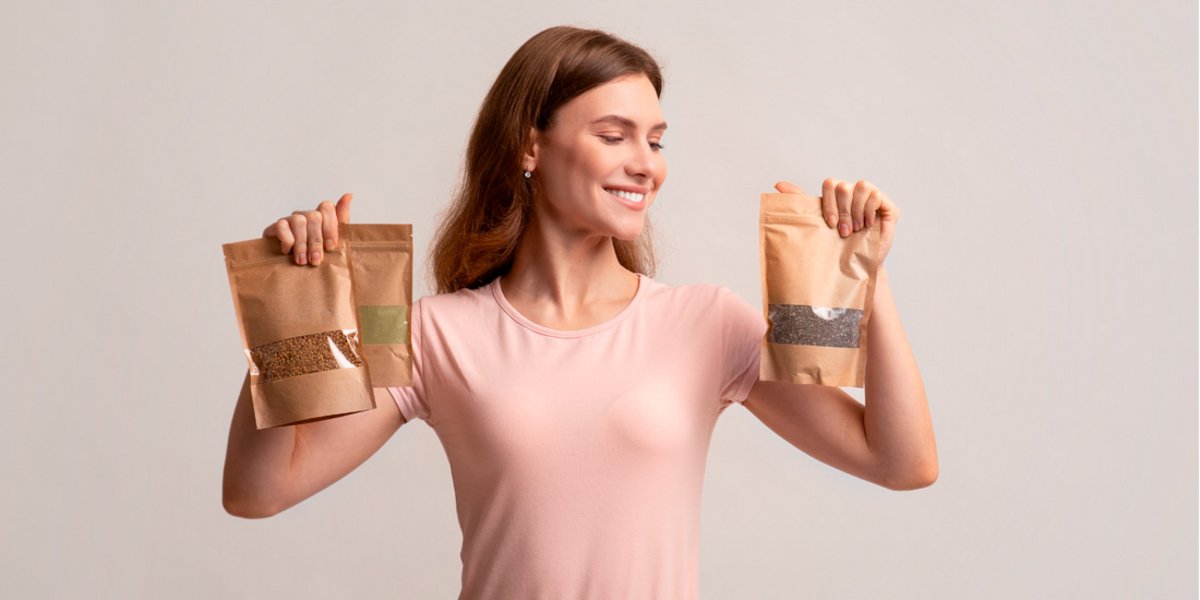Today, I will present you with the idea of buying loose goods in order to have zero waste. The idea is very simple, it is the proposal of products without manufactured packaging, sold in variable quantities according to the consumer's choice. In most countries, all these products are now on direct sale, from dried fruits and nuts, to pasta, rice, and even washing liquids.
Many people aged over 50 will recall that in their youth, many products were sold loosely, be this sweets in jars, grains in sacks and so forth. We or our parents used to carry these products away in paper bags, to be consumed directly from them, or to be placed in glass storage jars of our own at home. Take a look at The Waltons and the choice of loose goods was even bigger then!
Buying loose products that you can store in your own containers at home certainly would seem more ecological and economical. But is it really true in the 2020s?
Money, honey
Let's deal with these two points one by one, like academics. Let's talk money first! In many European countries, organic supermarkets, specialist shops and even mainstream supermarkets have gone through the motions of selling “loose goods” this last few years. Some have been successful at this and others have not. The implementation of offering loose goods is actually more complicated than it seems, causing a reworking of the previous mode of operation. Stock management, hygiene measures, new containers, fittings, all have to be rethought and reconsidered (a haunting investment for the giant supermarket chains).
The reality is therefore that in some supermarkets, bulk is sometimes more expensive than packaged products. All this can be explained by the price of small volumes purchased in bulk, against large volumes for packaged products. Negotiation is therefore more difficult for bulk.
On the other hand, due to the recent economic crises, some people have got really good at understanding the possible price per kilo of various goods that they frequently use. This means they actively go after the best quality goods at the best price, even if it means buying in larger quantities. But often, this needs some forward thinking and planning on how and where to store your purchased products at home.
Making it last
Storing in glass jars rather than plastic jars or rather than leaving things in plastic packaging can also be beneficial for various reasons. For one, food can last longer. Secondly, unlike plastic, glass is not porous and therefore the flavour and quality of the food can be preserved. Food also doesn’t leave any residues on glass, and so glass can be carefully washed and rewashed without any ill effects. Plastic over time as you will know, will fade and be tarnished by residues from many foods.
Buying loose goods often requires a storage rethink at home too. Having glass or plastic jars outside of cupboards may be attractive to begin with, but jars will often soon attract dust or kitchen grease. If you are able to have a designated cupboard or create a pantry space this is ideal. And of course, anyone with a cool garage, shed or cellar can be lucky enough to be able to dedicate some storage space quite safely with food being stored in airtight glass jars. Storing in a cool dry place is helpful and if needed, a curtain can help keep products in the dark.
Loose and eco-friendly
Now let's talk about ecological aspects. The manufacture of packaging uses vast amounts of energy, water and other natural resources from our planet. And of course protecting our planet is essential! Creating plastic packaging also creates one big whopper of a carbon footprint. After we have opened any plastic packaging, we all know the effects of plastic on our seas, in our air and on the planet in general. Reusing plastic gets you a step of the way to being ecological, but avoiding buying plastic packaging where possible is certainly a giant step in the right direction. Buying loose product is great if you can do it. If in doubt, start small on on one or two products and see how you go. You can at least be proud that you made a start!









